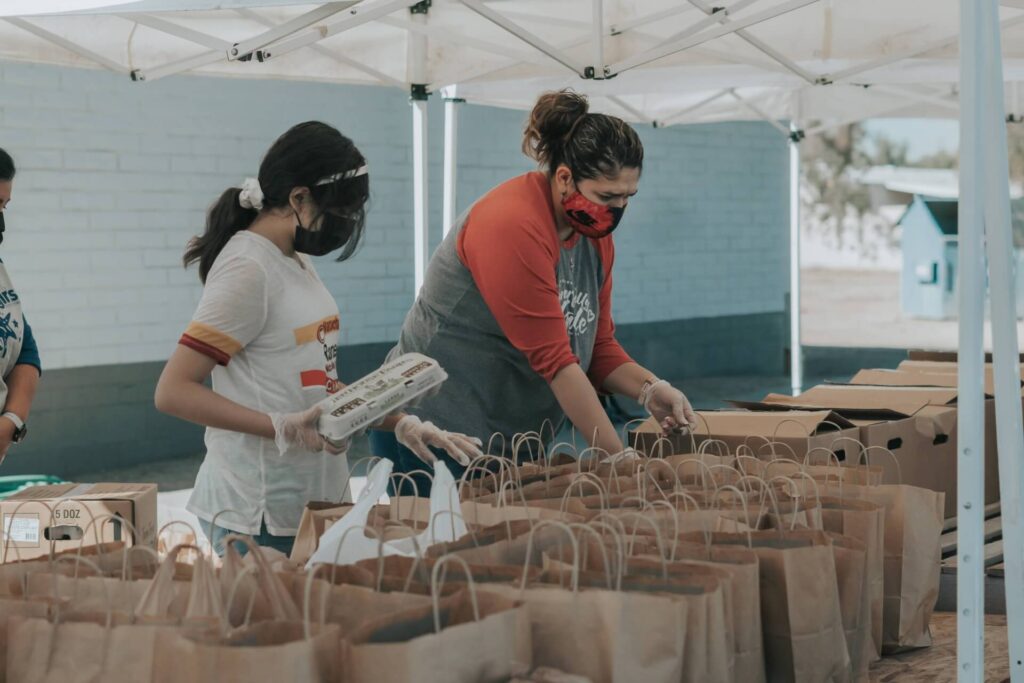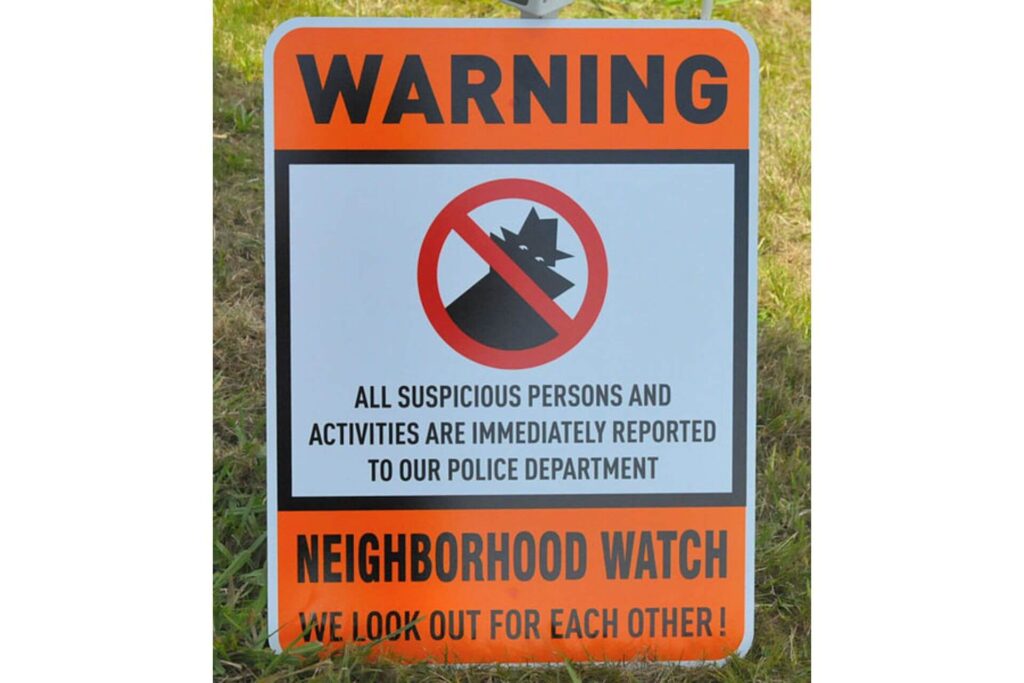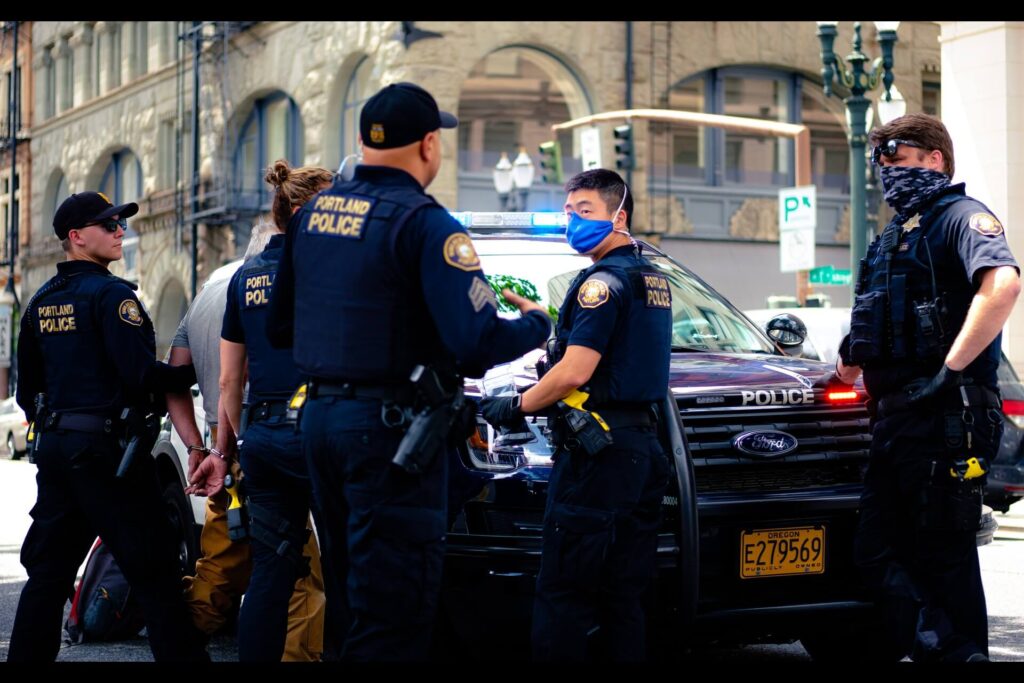
We are reader-supported. When you buy through links on our site, we may earn an affiliate commission.
Neighborhood watch (NW) programs have been a part of the American culture for many decades. They persist because they work, but is there a dark side to them?
What Is Neighborhood Watch?
NW is an initiative to encourage citizens to play active roles in keeping communities safe and improving residents’ quality of life. It also goes by many names — block watch, town watch, crime watch or business watch — but it’s all the same.
It’s civic in nature, but some companies have adopted it to address business-related issues — like catching rogue employees committing theft — the management can’t resolve alone. Some academic institutions also use it to combat racism and protect the targeted members of their student bodies.
Where Did Neighborhood Watch Originate?
Modern NW in the United States started in 1972 when the National Sheriffs’ Association created the National Neighborhood Watch Program as a response to worsening crime rates in the late 1960s.
In 2002, USAonWatch was born after the 9/11 terrorist attacks to inspire civilians to contribute to homeland security.
NW isn’t exclusively American. Other nations also use a similar idea to promote crime prevention with varying degrees of success. Some examples include Australia, Canada, Japan, Kazakhstan, South Africa and the United Kingdom.
What Does Neighborhood Watch Actually Do?
NW groups can have different organizational structures and prioritize various agendas. However, they generally help curb crime — especially terrorism — through observation and awareness. They work hand in hand with law enforcement to report suspicious activity and get lawbreakers apprehended more quickly.
Police departments have limited resources and can’t always perform their duties effectively. NW members help offset police force deficiencies by serving as the eyes and ears of law enforcement officers on the ground.
Furthermore, NWs are instrumental in community emergency preparedness. They lead the way in citizen disaster response to help save lives and minimize property damage during calamities and other tragedies.

NW volunteers can also benefit from each other regarding home security. They share best practices — like tricks to make an empty house look occupied — and be better at protecting their loved ones and valuables.
What Activities Constitute Neighborhood Watch?
Interacting with other residents, putting up signs discouraging would-be wrongdoers, and regularly patrolling the streets at night are the usual activities that constitute neighborhood watch.
NW groups don’t work in the shadows. NW members are informal agents of social control. They intend to make their presence as socially visible as possible as a deterrence against criminality. They want to let everyone know that law-abiding citizens rule the community and won’t stand idly by while transgressions occur.
What Do the Neighborhood Watch Signs Mean?

“Neighborhood Watch Sign” by Ellin Beltz is licensed under CC BY-SA 4.0 / Resized from original and added to a white background
Neighborhood watch signs mean NW volunteers will report suspicious individuals or activities to the authorities. They tell the public that advocates of law and order keep a watchful eye on the neighborhood, helping instill a sense of safety in the community.
Are Neighborhood Watch Signs Effective?
Neighborhood watch signs are an excellent visual deterrent to criminal activity. Some still break the law in broad daylight. However, many feel less bold to do anything that can put them behind bars when they know someone’s watching and they can’t get away with what they do.
Does Neighborhood Watch Affect Crime?
Neighborhood watch generally affects crime positively. Mobilizing citizens to look after one another and play active roles in helping law enforcement officers do their jobs increases the risks crooks have to deal with. Reducing opportunities for crime naturally reduces crime, so communities with thriving NW programs are more threatening to criminals.
Is Neighborhood Watch Free?
NW participation is volunteerism. Members willingly devote their resources to the cause. NWs live off grants from private groups and local governments to finance their operations.
Is Neighborhood Watch Vigilantism?
No, neighborhood watch isn’t vigilantism. NW groups tell their volunteers to report suspicious individuals or activities to the police instead of taking matters into their own hands.
NW members don’t commit crimes to help curb crime. Some may have experience in law enforcement or self-defense, but NWs encourage people to refrain from taking personal risks to neutralize suspected lawbreakers.
Is Neighborhood Watch Community Policing?
No, neighborhood watch isn’t community policing. NW encourages residents to participate actively in crime prevention, neighborhood cleanup, homeless assistance, emergency preparedness and disaster response activities. Only civilians comprise NWs, although they collaborate with the authorities.
On the other hand, community policing is about establishing closer partnerships between law enforcement officers and community stakeholders, including residents, businesses, media organizations, nonprofits, other government agencies and NW groups.
Only members of the police force are behind community policing initiatives. They aim to identify pressing public safety concerns and develop effective ways to solve them proactively. They also hope to increase trust in law enforcement officers, which is less attainable without cleansing their ranks and implementing meaningful structural reforms.
What Are the Disadvantages of Neighbourhood Watch?
Crossing the line and endangering member safety are the disadvantages of neighborhood watch. NWs can become vigilante forces when led by corrupt individuals. Some volunteers may overreact or feel overwhelmed in specific situations, putting themselves and others in danger.
NW groups champion the law, but they may inadvertently get into conflict with it when their members are unfamiliar with what they can and can’t do.
Even worse, the actions of some may negatively impact official police operations. Crooks may become more careful, knowing many community members actively pay attention to suspicious activity. Law enforcement officers may also confuse NW volunteers with criminals.

Moreover, like-minded residents with malice may form an NW group to harass specific individuals or groups. Such a scenario can happen in areas experiencing shifting demographics. NW participation can give some community members power over their disliked residents and protect their selfish interests.
Does Neighborhood Watch Really Work?
Neighborhood watch can work when its volunteers are competent and ethical. Inept volunteers may do more harm than good, while misguided groups can be more menacing to the public than some criminals.
Is Neighborhood Watch a Good Thing?
NW can be a force for good. In theory, it promotes noble aspirations to benefit law-abiding citizens and punish criminals. However, the social power its members gain from it is prone to abuse. Malicious individuals can use it as an excuse to bug or jeopardize others.
Communities can be safer with NW programs, but the public — including you — and the authorities should be vigilant against giving their volunteers free rein to operate as they see fit.










